A Look Back at the First Latinos to Win an Oscar in Acting, Writing, Directing, Editing & More

Oscar winners for 'West Side Story,' George Chakiris, left, Jerome Robbins, Robert Wise and Rita Morena, 1962. Photo: AP
It seems like the Academy Awards have only just this century begun paying attention to Latinx filmmakers. Big wins for projects by Alfonso Cuarón, Guillermo del Toro, and Alejandro González Iñárritu in the past few years have put into relief just how rarely the Academy had embraced Latinx projects. The success of films like Roma and Pan’s Labyrinth seem like mere exceptions to the rule. Which is not to say there’s not a(n albeit short) history of the almost 90-year-old institution has a long history of rewarding Latinx talent. We’re all very familiar with the triumphant wins of Rita Moreno and Anthony Quinn, but we decided to go deep into the archives of Oscar history to find more examples to celebrate.
What did we learn, other than U.S.-born Latinos remain almost absent and that the Academy Awards have really under-valued Latin American cinema, particularly in the Best Foreign Language Film category? Well, of note is the fact that no Latinx have prevailed in high profile contests like Best Actress and Best Documentary. While the former category has seen such nominees as Brazil’s Fernanda Montenegro (Central Station), Mexico’s Salma Hayek (Frida) and Yalitza Aparicio (Roma), as well as Colombia’s Catalina Sandino Moreno (Maria Full of Grace), it’s never been won by a Latin American or a U.S. Latina actress (that is, unless you count Hilary Swank’s two wins given her Mexican ancestry). Similarly, documentaries about bullfighting in Mexico (1957’s Torero!), El Salvador’s civil war (1981’s El Salvador: Another Vietnam, co-directed by Brazilian Tetê Vasconcellos), Argentines disappeared during the military dictatorship (1985’s Las madres de la plaza de Mayo) and Brazilians grappling with their tumultuous political climate (2019’s Edge of Democracy) have earned recognition from the Academy, but none have won gold.
Nevertheless, there are plenty of wins to champion in categories as remote as Art Direction and Best Actor that date back all the way to 1940s. While we wait for next year’s ceremony to see whether we’ll be able to stop counting on one hand the Latinos nominated in various categories (a shameful statistic at that!), check out below an exhaustive list that spotlights historic wins by Latin Americans, U.S. Latinos, and Puerto Ricans (who starkly point out how blurry that distinction can be).

Alejandro González Iñárritu, <em>Birdman</em> (2014)
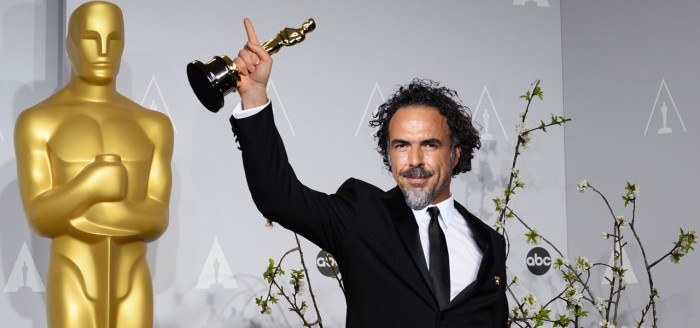
It took 87 years but a Latin American filmmaker finally took the Best Picture Oscar for this dark comedic take on the superhero movie, Birdman or (The Unexpected Virtue of Ignorance). In fact, Alejandro González Iñárritu has the distinction of being the most nominated Latin American producer in this category (with three overall). And what would otherwise have been a rousing moment when he won will always be soured by Sean Penn’s tasteless “Who gave this son of a bitch a green card?” joke. The other Latin American winner in this category is Guillermo del Toro (The Shape of Water) while Alfonso Cuarón and his producing partner Gabriela Rodríguez earned nods for Roma, making Rodríguez the first Latina nominated in this category.
No U.S. Latino filmmakers have even been nominated for this award. Yet.
<strong>BEST DIRECTOR</strong>
Alfonso Cuarón, <em> Gravity </em> (2013)

Following nominations for Argentine-born Brazilian director Héctor Babenco (Kiss of the Spider Woman), Brazilian Fernando Meirelles (City of God) and Alejandro González Iñárritu (Babel), Cuarón triumphed, becoming the very first Mexican director to take home a Best Director Oscar for directing Gravity. Since Cuarón’s win, Mexicans have all but dominated the category, with González Iñárritu winning two years in a row (for Birdman and The Revenant), followed by Guillermo del Toro’s win for The Shape of War and capped by Cuarón’s second win for Roma.
No U.S. Latino director has been nominated for this award. Yet.
<strong>BEST ACTOR</strong>
José Ferrer, <em>Cyrano de Bergerac</em> (1950)
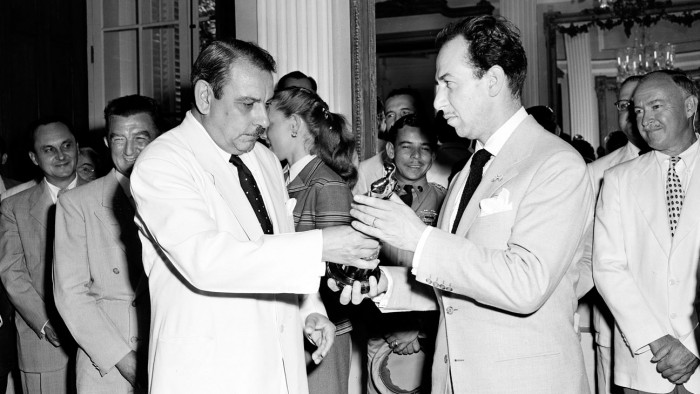
Born José Vicente Ferrer de Otero y Cintrón in Puerto Rico, Ferrer was the very first Latino nominee in this category, the first winner, and the first to nab a follow-up nomination again in 1952 for Moulin Rouge. Curiously, both awards were for French characters. “I consider it a vote of confidence and an act of faith and, believe me,” he said upon winning, “I’ll not let you down.” Other nominees that came after include Mexican actors Anthony Quinn (for 1957’s Wild Is the Wind, 1964’s Zorba the Greek) and Demián Bichir (2011’s A Better Life).
Only one U.S. Latino actor has been nominated for Best Actor: Los Angeles-born Edward James Olmos for Stand and Deliver in 1988.
<strong>BEST SUPPORTING ACTOR</strong>
Anthony Quinn, <em>Viva Zapata!</em> (1952) & <em>Lust for Life</em> (1956)
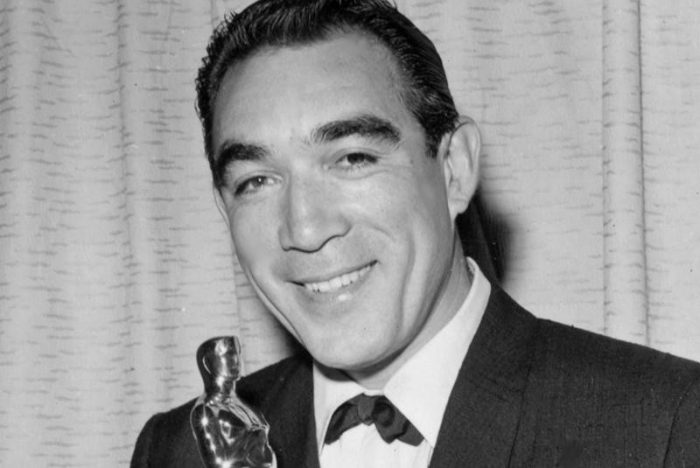
Born Antonio Rodolfo Quinn Oaxaca in Chihuaha, the Mexican actor won this award twice. While he wasn’t there to accept his first award (his wife did so on his behalf), he was happy to be there for his surprise win when he triumphed over Mickey Rooney and Robert Slack (who quipped “we wuz robbed!”). He gave a heartfelt speech saying that he’d only ever competed with himself, “and I thank you very much for letting me win that fight over myself.”
In addition to Ferrer, who earned a nomination in 1948 for his work on Joan of Arc, Cuban-born Andy García was also cited in this category for his role as Vincent Mancini in The Godfather Part III.
Benicio del Toro, <em>Traffic</em> (2000)
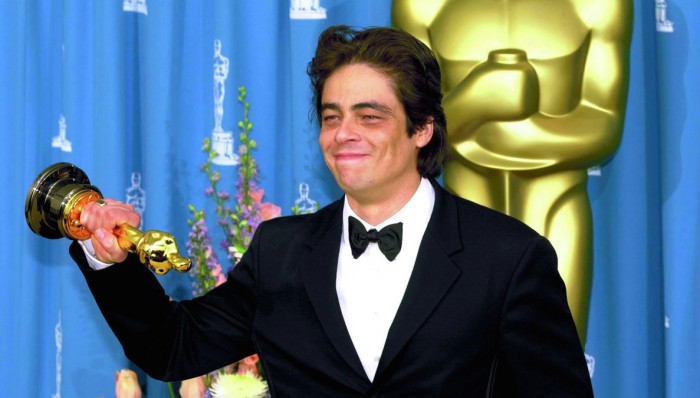
To date, del Toro remains the only actor to have won this award for a Spanish-language role. The Puerto Rican actor portrayed Mexican police officer Javier Rodriguez in Steven Soderbergh look at the drug wars. In accepting his award, the actor spoke to the broad-ranging scope of the film (which won three other awards that evening: ” I’d also like to dedicate this to two locations where we shot this film. We went from Washington, D.C. all the way to San Diego, California. I’d like to dedicate this to the people of Nogales, Arizona, and Nogales, Mexico.”
<strong>BEST SUPPORTING ACTRESS</strong>
Rita Moreno, <em>West Side Story</em> (1961)
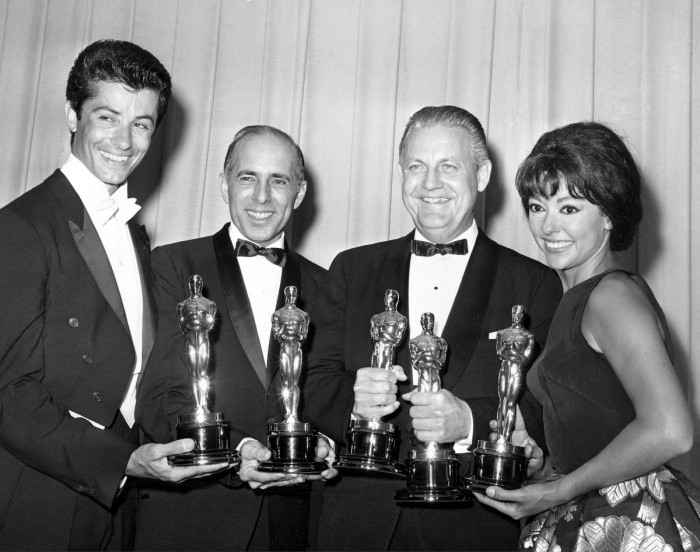
Following Katy Jurado’s nomination for Broken Lance in 1954, Puerto Rico’s Rita Moreno became the very first Latin American actress to win this award for her rousing work in the Oscar winning-musical West Side Story as the fiery Anita. Despite making history, she kept her speech short and sweet, “I can’t believe it! Good Lord. I leave you with that.”
Other nominees in this category have included Argentinians Norma Aleandro (Gaby: A True Story) and Bérénice Bejo (The Artist), and Mexican actresses Adriana Barraza for Babel and Marina de Tavira for Roma. Oh, and we shouldn’t forget to single out Lupita Nyong’o (a winner for 12 Years a Slave) who you may not know was born in Mexico City.
Mercedes Ruehl, <em>The Fisher King</em> (1991)
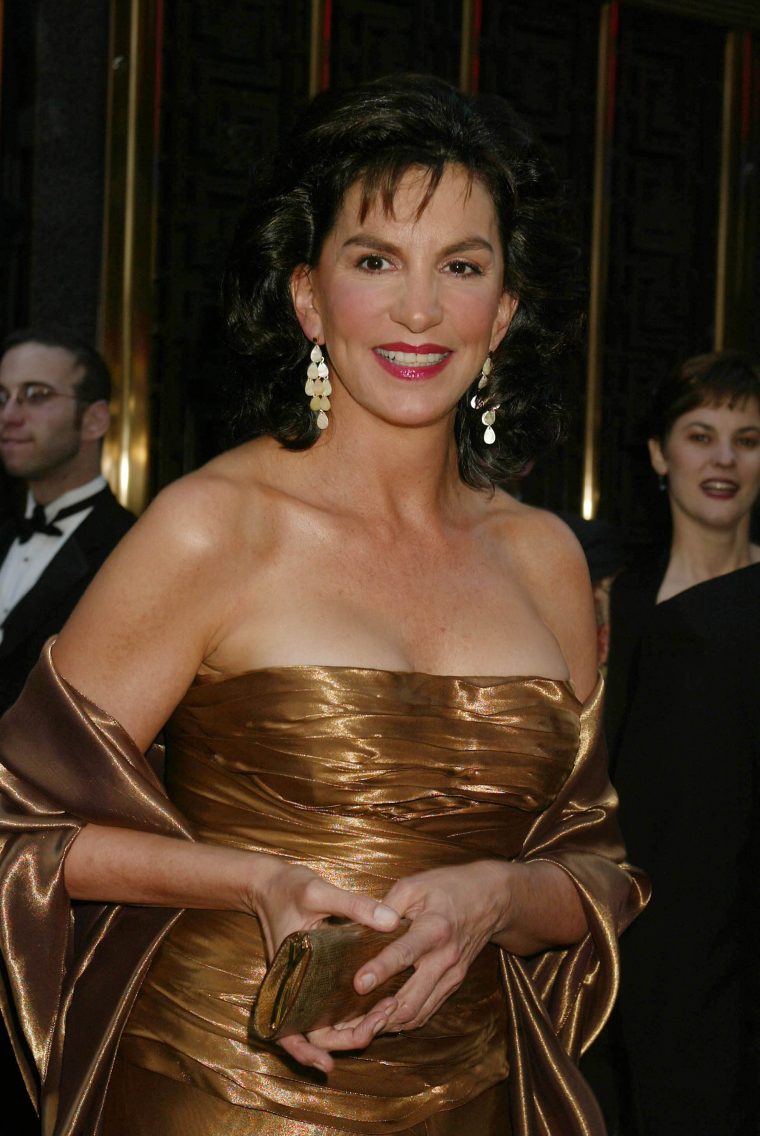
In her speech, Cuban-American actress Mercedes Ruehl went out of her way to thank Joe Papp who once told her during a theater rehearsal to stay in the light and keep at it. If the name sounds familiar, it is because Papp is the man who founded the Public Theater, where Lin-Manuel Miranda first developed Hamilton.
Other U.S. Latinas nominated in this category include Lupita Tovar’s daughter, Susan Kohner for Imitation of Life and Rosie Perez for Fearless.
<strong>BEST WRITING</strong>
Alejandro González Iñárritu, Nicolás Giacobone, Armando Bo & Alexander Dinelaris Jr, <em>Birdman</em> (2014)
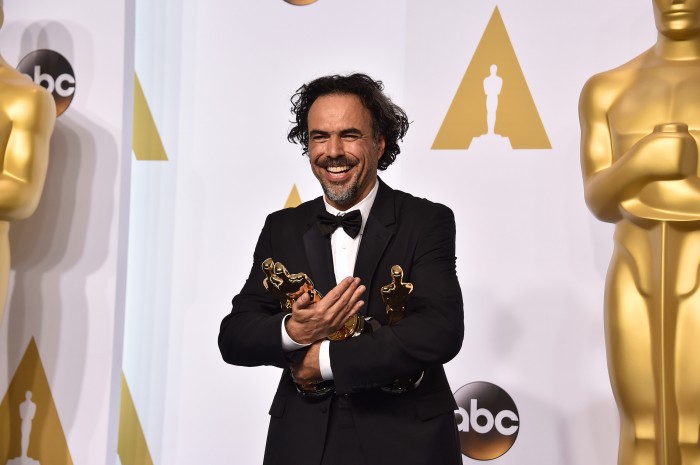
Alejandro González Iñárritu shared this award with two Argentine writers, Nicolás Giacobone and Armando Bo, and New York-born Cuban-Puerto Rican Alexander Dinelaris Jr.
Across both writing categories, the Oscars have singled out several of Iñárritu’s Latin American friends, including Guillermo Arriaga (Babel), Guillemo del Toro (Pan’s Labyrinth, The Shape of Water), Alfonso Cuarón (Y tu mamá también, Children of Men, Roma), as well as Brazil’s Bráulio Mantovani for City of God.
Only one other U.S. Latino filmmaker has been nominated for a screenplay award: Gregory Nava for 1983’s El Norte.
<strong>BEST INTERNATIONAL FEATURE FILM</strong>
<em>La historia oficial</em> (1985), Argentina
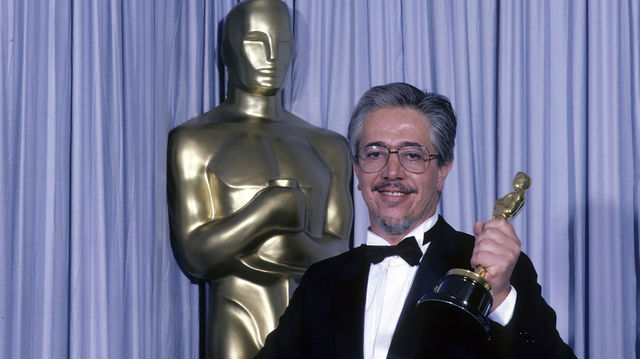
Previously known as Best Foreign Language Film, there’s no denying this category remains beholden to Europe with Italy, France, Spain and Germany topping the list in terms of nominations and wins. That means Latin America, despite endless submissions has had to make due with the scant attention its gotten. It took until 1960 for a Latin American film, Mexico’s Macario to earn a nomination and until 1985 until Argentina’s Luis Puenzo’s historical drama to win outright (a feat that only his compatriot Juan José Campanella would repeat in 2009). He went political in his speech: “As I stand here accepting this honor I cannot forget that on another March 24th ten years ago, like this day, we suffer[ed] the last military coup in my country. We will never forget this nightmare but we are starting now to begin with our new dreams. Thank you.”
Considering Latin America’s booming film industry this century it’s no surprise to find that the last ten years have yielded three winners from the region: Argentina’s El secreto de sus ojos (2009), Chile’s Una mujer fantástica (2017), and Mexico’s Roma (2018), the latter of which notched 10 nominations overall, making it one of the most nominated non-English language films in Oscar history.
Other nominations for Latin America include, among others, El abrazo de la serpiente (Colombia, 2015), No (Chile, 2012), Central do Brasil (Brazil, 1998), Fresa y chocolate (Cuba, 1994), and Alsino y el Cóndor (Nicaragua, 1982).
<strong>BEST CINEMATOGRAPHY</strong>
Guillermo Navarro, <em>Pan's Labyrinth</em> (2006)
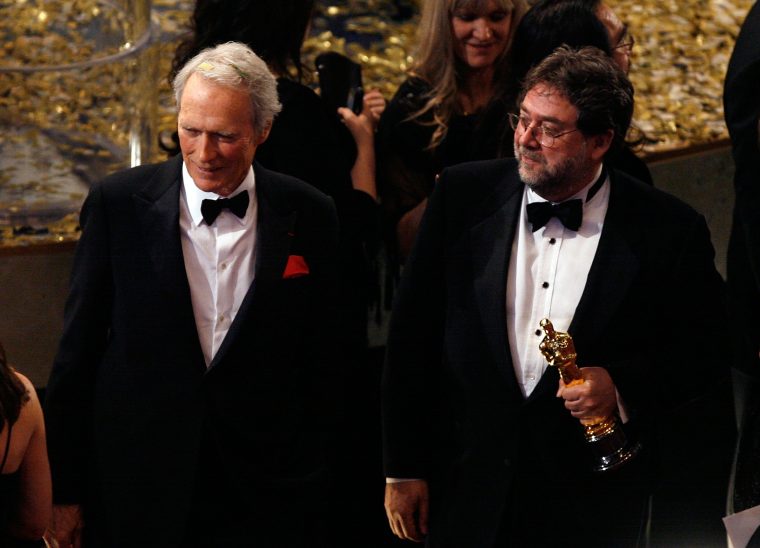
Emmanuel Lubezki (aka Chivo) may hold the record for most consecutive wins in the category (three for Gravity, Birdman and The Revenant) but his compatriot Guillermo Navarro was the first to take the gold, beating the celebrated Mexican cinematographer, who was nominated for Children of Men, in the process. That’s why you knew he meant it when he congratulated his fellow nominees and saying it was an honor to be in their company. Other nominees in the category include fellow Mexicans Rodrigo Prieto (Silence, The Irishman) and Alfonso Cuarón—whose win for Roma made him the first director to win for lensing his own film—as well as Chilean Claudio Miranda (The Curious Case of Benjamin Button, Life of Pi).
No U.S. Latino cinematographers have been nominated in this category. Yet.
<strong>BEST ORIGINAL SONG</strong>
Irene Cara, "Flashdance... What a Feeling," <em>Flashdance</em> (1983)
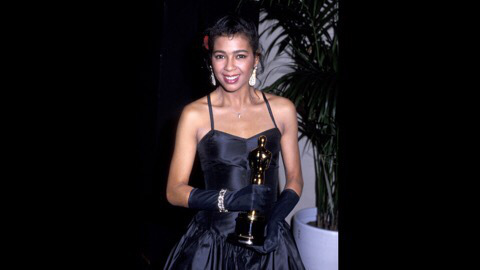
Bronx-born Cara, who rose to stardom after her breakout role as Coco Hernandez in Fame, became the first U.S. Latina musician to win the Best Original Song Oscar which she shared with Giorgio Moroder and Keith Forsey.
Other nominees include Luis Resto who shared in Eminem’s win for the 8 Mile song “Lose Yourself” and Lin-Manuel Miranda for the Moana song “How Far I’ll Go.”
Jorge Drexler, "Al Otro Lado Del Río" <em>Diarios de motocicleta</em> (2004)
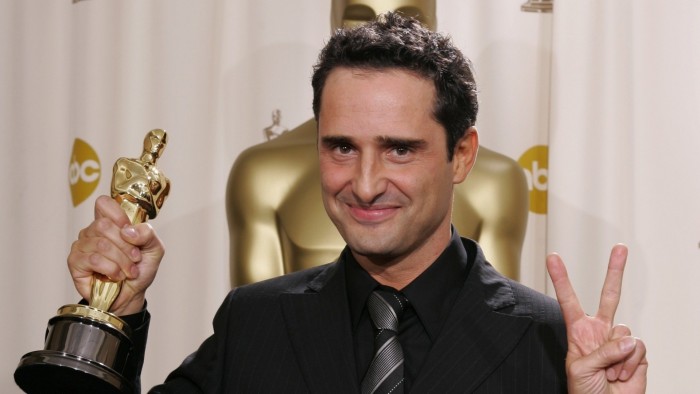
Previous Latin American nominees had included Brazil’s Ary Barroso for the song “Rio de Jaineiro” (1945’s Brazil) and Argentina’s Jorge Calandrelli for the song “A Love Before Time” (2000’s Crouching Tiger Hidden Dragon), but it was Drexler who first prevailed in the category. He remains the sole Latin American winner.
<strong>BEST ORIGINAL SCORE</strong>
Luis Bacalov, <em>The Postman</em> (1995)
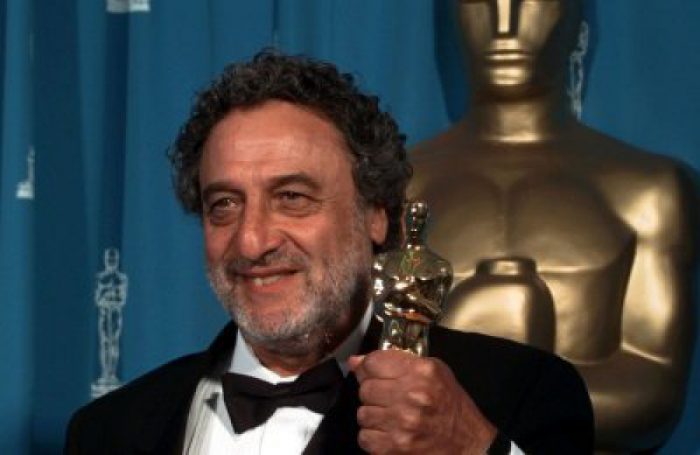
Argentine-born Bacalov, who was first nominated back in 1966 for his score for Il Vangelo secondo Matteo, became the first Latin American winner of the category for another Italian production. More recently, Gustavo Santaolalla became a two-time winner for Brokeback Mountain and Babel.
<strong>BEST EDITING</strong>
Alfonso Cuarón, <em>Gravity</em> (2013)

This category has only seen two other Latin American editors. Longtime Cuarón collaborator, Alex Rodriguez from Mexico (who edited Y tu mamá también and earned a nod alongside his director for Children of Men) and Cidade de Deus‘s Daniel Rezende from Brazil.
No U.S. Latinos have been nominated in this category. Yet.
<strong>BEST ANIMATED FEATURE</strong>
Jonas Rivera, <em>Inside Out</em> (2015)
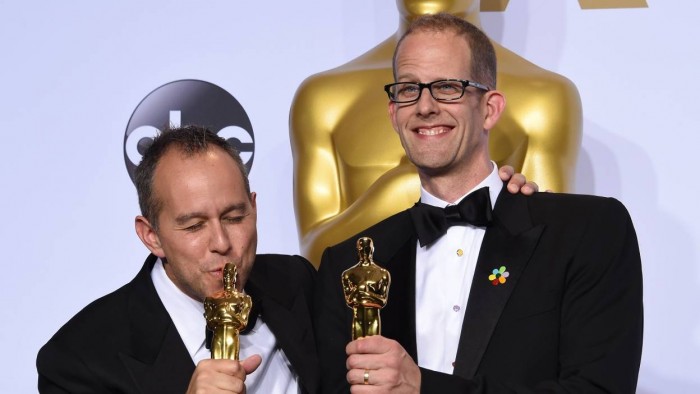
Born and raised in Castro Valley, California, Pixar producer Jonas Rivera became the first and thus far only U.S. Latino nominee and winner in this category for Inside Out, and again for Toy Story 4. He’s recently been joined by Cuban-American Phil Lord who won this category in 2019 for Spider-man: Into the Spider-Verse, which centered on Afro-Latino Miles Morales. (You’d be forgiven for thinking Coco’s co-director, Mexican-American Adrian Molina should be on this list, but the official nomination and win for that Pixar Día de Muertos film went solely to its director Lee Unkrich and his producer Darla K. Anderson.)
Only two Latin American filmmakers have been nominated in this category: Rio de Jaineiro-born Carlos Saldanha who’s nabbed nominations for co-directing Ice Age and Ferdinand, and São Paulo’s own Alê Abreu, who became the first to be nominated for a Latin American production with 2015’s Boy & the World. None have won.
<strong>BEST SHORT (ANIMATED)</strong>
Pato Escala Pierart & Gabriel Osorio Vargas, <em>Historia de un oso</em> (2015)
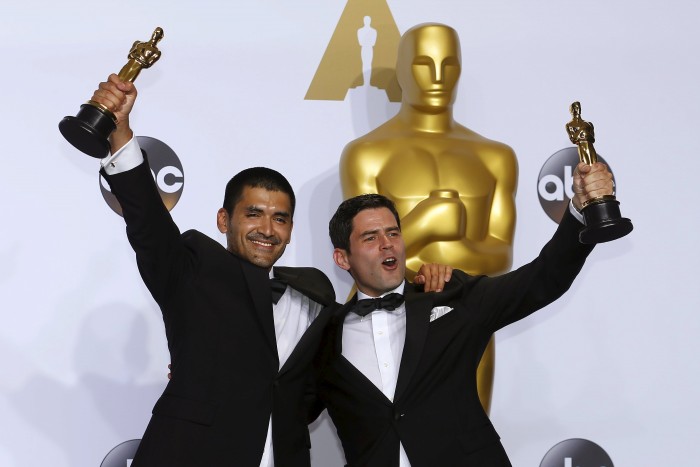
Latin American filmmakers were widely represented at the 88th Academy Awards with wins for Iñárritu, Lubezki, and for an animated short from Chile. The only previous nominee in this category was Carlos Saldanha who’d followed-up Ice Age with a short focused on the most beloved character from that franchise in Gone Nutty. Upon getting up on the podium Escala didn’t try to downplay their win in his speech: “We are from a small country called Chile. This is the first Oscar for our country, so this is very important for us. Thank you all. Un gran aplauso para todos. Viva Chile!”
No U.S. Latino filmmaker has been nominated in this category. Yet.
<strong>BEST SHORT (LIVE ACTION)</strong>
Manuel Arango & Robert Amram, <em>Centinelas del silencio</em> (1971)
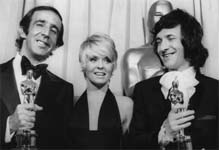
Amram’s short documentary film, on ancient Mexican civilizations holds the distinction not only for being the first Latin American short film to be nominated in this category but for being the only short film to ever win two awards the same year. Because of a lax set of rules in terms of eligibility, Centinelas de silencio also won the Best Short (Documentary) category. Other Latin American nominees include Salvadorean producer André Gutffreund (for 1976’s winner In the Region of Ice), Mexico’s De tripas, corazón in 1996 and Paulo Machline’s Brazilian flick Uma História de Futebol in 2001.
No U.S. Latino filmmakers have been nominated in this category. Yet.
<strong>BEST SHORT (DOCUMENTARY)</strong>
Manuel Arango & Robert Amram, <em>Centinelas del silencio</em> (1971)

Amram put it best in his short speech: “Ladies and gentlemen, members of the Academy, we were rather shell shocked last time, and it’s my turn to speak this time and I’m still shell shocked. Thank you very much.” Other nominees in this category include Argentine Jorge Preloran (for 1980s’ Luther Metke at 94), Colombians Amanda Micheli and Isabel Vega (for 2007’s La Corona), and Nicaraguan Gabriel Serra Argüello (for 2014’s La parka)
No U.S. Latino filmmakers have been nominated in this category. Yet.
<strong>BEST MAKEUP AND HAIRSTYLING</strong>
Beatrice De Alba, <em>Frida</em> (2002)
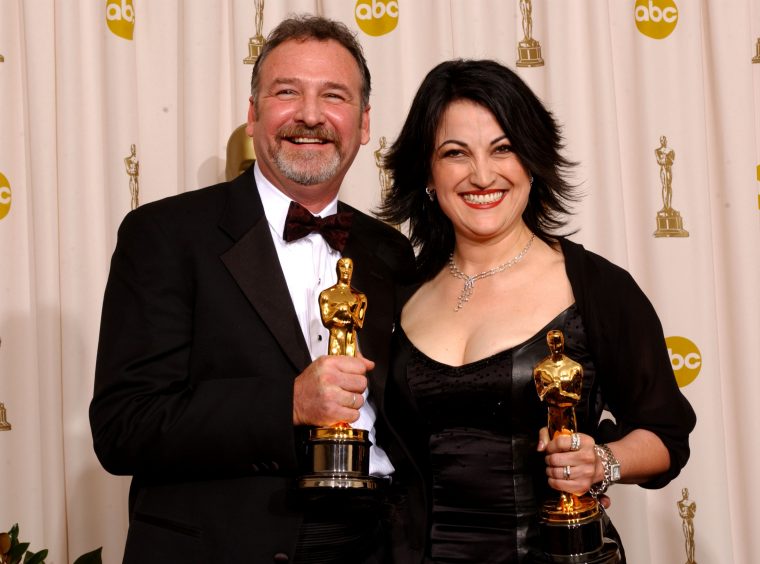
Salma Hayek’s passion project about the famed Mexican artist was the first film to earn a nomination (and a win!) in this category for a Latin American. Makeup artist De Alba, who shared her award with John Jackson, joked slash thanked Salma by stating that she hoped her “salary on the next one be bigger than the entire budget on this one.” The other Latin American nominee in this category came courtesy of another Mexican championing the work of his peers: Mike Elizalde for his work on Guillermo del Toro’s Hellboy II: The Golden Army.
No U.S. Latinos have been nominated in this category. Yet.
<strong>BEST ART DIRECTION</strong>
Emile Kuri, <em>The Heiress</em> (1949) & <em>20,000 Leagues Under the Sea</em> (1954)
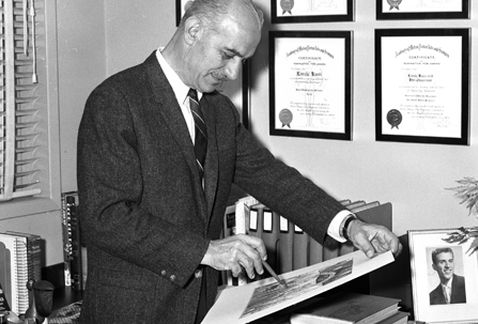
Did you know that the set designer behind such films as 20,000 Leagues Under the Sea and Mary Poppins was born in Cuernavaca? Yep, born to Lebanese parents, Kuri was a prolific set decorator in his time, earning the first ever nomination for a Mexican set decorator, and later amassing seven other nominations including two wins. Argentinean Eugenio Zanetti (for 1995’s Restoration), German-Mexican Brigitte Broch (for 2001’s Moulin Rouge!) and Mexican Eugenio Caballero (for 2006’s Pan’s Labyrinth) have also won this award, with the latter also earning a nomination alongside Bárbara Enríquez for their work on Cuarón’s Roma.
No U.S. Latinos have been nominated in this category. Yet.
<strong>BEST VISUAL EFFECTS</strong>
Adam Valdez, <em>The Jungle Book</em> (2016)
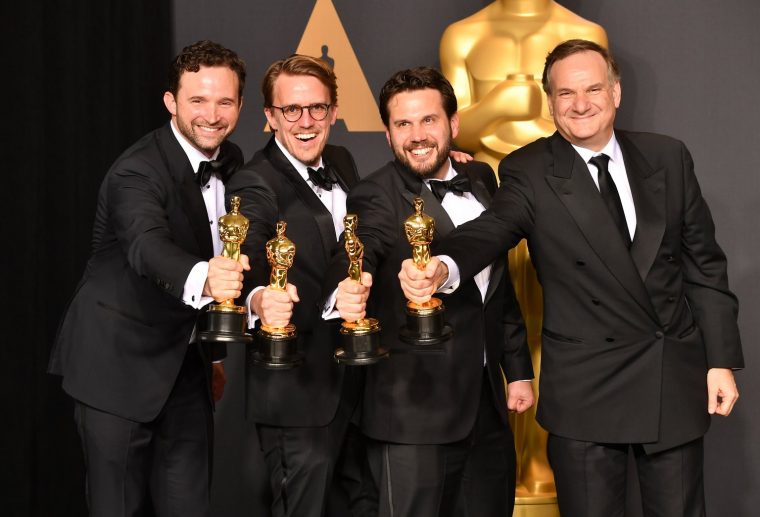
Mexican-American visual effects supervisor made history when, along with his colleagues, he won the Oscar for Best Visual effects for his work on Disney’s live action remake of The Jungle Book. He was nominated again for yet another live action remake: Disney’s The Lion King, while the visual effects team for The Irishman included Pablo Helman, Leandro Estebecorena, both of whom hail from Argentina.